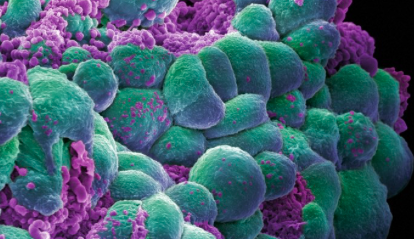
For people who have been through menopause and have taken menopausal hormone therapy, conjugated equine estrogen (CEE) taken alone may increase the risk of developing and dying from ovarian cancer, while CEE combined with medroxyprogesterone acetate (MPA) does not increase this risk and may reduce the risk of developing uterine cancer. The research will be presented at the 2024 American Society of Clinical Oncology (ASCO) Annual Meeting, taking place May 31-June 4 in Chicago, Illinois.
About the Study
“Before these randomized, placebo-controlled clinical trials, observational studies examining the influence of estrogen plus progestin on ovarian and endometrial cancers gave mixed results. Also, there were no randomized findings regarding the effects of estrogen alone on ovarian cancer mortality. Our study provides the only long-term information from a randomized clinical trial on two common cancers in postmenopausal women for two of the most commonly used medications.” – Rowan Chlebowski, MD, PhD, The Lundquist Institute, Torrance, California
Researchers performed a long-term follow-up analysis of two randomized clinical trials that ran from 1993 to 1998 as part of the Women’s Health Initiative (WHI). The researchers evaluated data from 40 research centers in the United States (U.S.) that enrolled 27,347 women aged 50 to 79 who had been through menopause and who had not had breast cancer or another type of cancer within the preceding decade. About 1 of every 5 women in the study were from racial and ethnic minority groups, which was proportional to the U.S. population at the time of the study. Of the participants, 16,608 still had a uterus, and 10,739 had undergone a hysterectomy to remove their uterus.
On a randomized basis and per standard of care at the time, participants who had a hysterectomy received CEE—a type of menopausal hormone therapy that contains only estrogen—while patients who still had a uterus received CEE plus MPA—which provides both estrogen and progestin. Of the participants who had a hysterectomy, 5,310 received CEE alone and 5,429 received a placebo. Of the participants who still had a uterus, 8,506 received CEE plus MPA and 8,102 received a placebo.
The researchers planned for participants to receive their respective treatments for 8.5 years, but treatments were stopped after 5.6 years in the CEE plus MPA group due to increased breast cancer risk and after 7.2 years in the CEE alone group due to increased risk of stroke.
“This long-term follow-up of the Women’s Health Initiative study shows that while postmenopausal women taking conjugated equine estrogen (CEE) alone had a higher incidence of ovarian cancer incidence and mortality compared to women taking placebo, the absolute risk of ovarian cancer was extremely low in both groups. While this new information is an important part of patient counseling and education, given the low numbers, it should not necessarily impact a woman’s decision to take menopausal hormone therapy for symptomatic relief of menopausal symptoms. Currently, CEE is a less commonly used estrogen preparation, and this makes it hard to extrapolate these study results to modern-day estrogen preparations, although the historical context is helpful.” – Eleonora Teplinsky, MD, Valley Mount Sinai Comprehensive Cancer Care, Paramus, New Jersey.
Key Findings
- At a 20-year follow-up, the researchers found that those in the CEE-alone group were twice as likely to develop ovarian cancer and nearly three times more likely to die from ovarian cancer than those who received the placebo. The increased risk of developing ovarian cancer began at 12 years of follow-up and did not diminish over time.
- For the CEE plus MPA group, those who received CEE plus MPA did not have an increased risk of developing or dying from ovarian cancer compared to those who received the placebo. Furthermore, those who received CEE plus MPA had a 28% lower risk of developing uterine cancer than those who received the placebo. However, this same impact was not seen on their risk of dying from uterine cancer.
Next Steps
Based on these data from the WHI, the researchers plan to integrate the harms and benefits of menopausal therapy identified in the WHI to include ovarian cancer. This risk is not currently incorporated into current prescribing guidelines for menopausal hormone therapy.
The Women’s Health Initiative trials were funded by serial contracts from the National Institutes of Health continuously from 1993.
